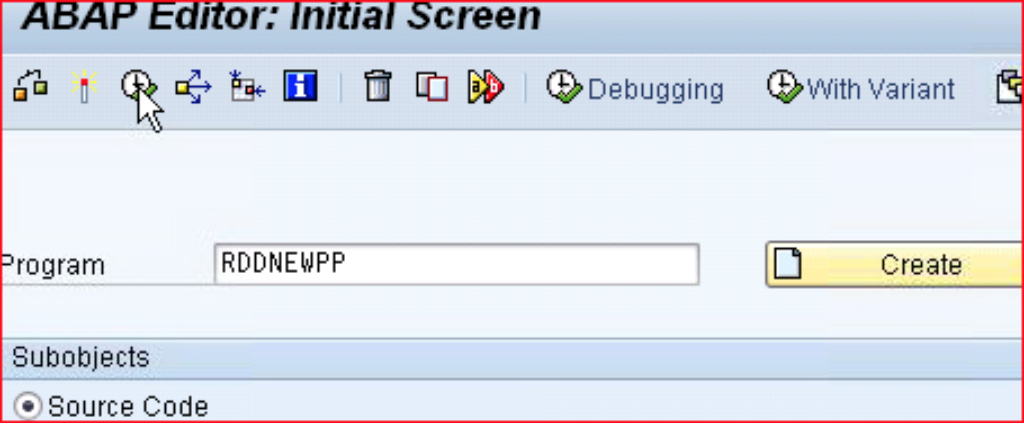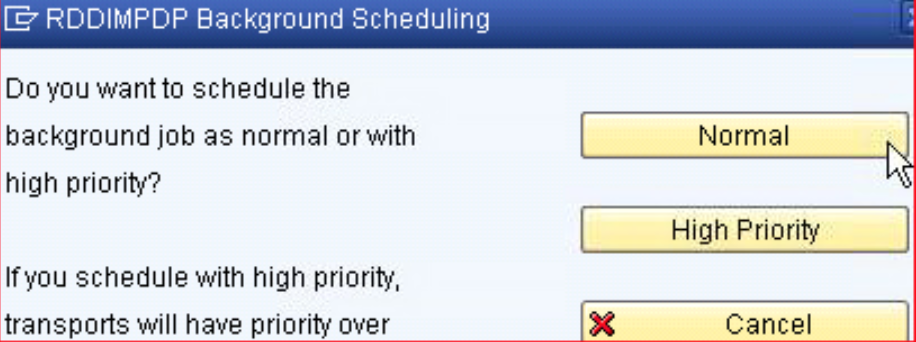1. Check if the SAP Job “RDDIMPDP” is correctly planned in client 000 created by user “DDIC”. Then verify the configuration of SAP Job RDDIMP_CLIENT_XXX, which must be present for each client with the user DDIC also.
2. If these Jobs are not present:
Connect to SAP system in client 000 with user “DDIC” and use SAP transaction SE38 to execute the SAP report RDDNEWPP, which will generate the job as principal RDDIMPDP 000
3. Select the Normal Priority to create the Jobs
Then for each client of SAP system perform the same task with user DDIC
4. JOB Creation for Refresh TMS queue
Use SAP transaction “STMS” and click on the car to select the Import Queue SAP.
Then select option “Extra” => Update All Import Queues
Select option « At start time » and plan the date, the hour, the period (every 45 Minutes) then validate.
After that, you can check if the SAP job“TMS_0000NNTMS_TP_REFRESH_**” is planned thanks to the SAP transaction SM37
Job Creation for Import
Use the transaction STMS and select the import queue
Select ‘Truck Button’ next to the lock for Import all requests.
Select option « At start time » and plan the date, the hour, the period (every 45 Minutes and an interval of 15 minutes with the Update import queue ) and validate
It will create an IMPORT Job “ TMS_0000NNTMS_TP_IMPORT “
After that, if you start the transaction SM37; you could see this two jobs.
LikeTMS_0000NNTMS_TP_REFRESH_** & TMS_0000NNTMS_TP_IMPORT Created and finished
Now STMS Buffer queue will get updated automatically with Transport management session jobs & New request will get imported into system automatically every 45 mins where jobs are running.
Vinod is a SAP Basis Expert on ERPfixers.






